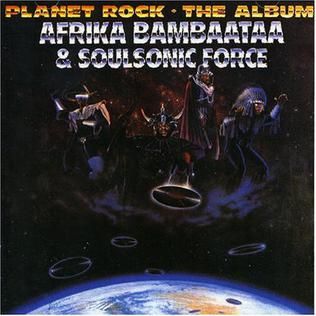Things Fall Apart, released in 1999, borrowed it's title from a work of literature by Chinua Achebe, a Nigerian author. Things Fall Apart the novel was published in 1959, a year before Nigeria gained it's independence, with the intent of telling the history of Africa from a native's perspective rather than from a colonizer's perspective, as all of the literature regarding Africa that preceded Achebe's work did just that. Joseph McLaren wrote an essay on the novel suggesting that the purpose of Achebe writing from a native's perspective was to use literature as a way to fight the western world's stereotypes of African natives.
Things Fall Apart was an appropriate name for the album because it recounts Black music history through the diverse music qualities mixed into each track- jazz, beep boxing, and beats that reflect "just about every classic hip-hop beat, from 'Planet Rock' to 'Scenario,'" as Ben Landy says in his review of the album, published in The Yale Herald, while reaching out to the white audience, displayed in The Root's shout out to "'coffee shop chicks and white dudes' in Common," as Allmusic.com's review of the album points out, similar to what Achebe did in attempting to recount African History in a manner that would reach the western world.
Sells a squads off like a slave auction
You don't want no more son? That's when more come
And drag a nigga Erie Avenue to Oregon, you're all done
And drag a nigga Erie Avenue to Oregon, you're all done
That's how we usually start, once again it's the Thought
The Dalai Lama of the mic, the prime minister Thought
This directed to whoever in listening range
Yo the whole state of things in the world bout to changeBlack rain fallin from the sky look strange
The ghetto is red hot, we steppin on flames
Yo, it's inflation on the price for fame
And it was all the same, but then the antidote came
The Dalai Lama of the mic, the prime minister Thought
This directed to whoever in listening range
Yo the whole state of things in the world bout to changeBlack rain fallin from the sky look strange
The ghetto is red hot, we steppin on flames
Yo, it's inflation on the price for fame
And it was all the same, but then the antidote came
Learnin' the ropes of ghetto survival
Peepin' out the situation I had to slide through
Had to watch my back, my front, plus my sides too
When it came to gettin' mine I ain't tryin, to argue
Sometimes I wouldn'ta made it if it wasn't for you
Hip-hop, you the love of my life and that's true
Peepin' out the situation I had to slide through
Had to watch my back, my front, plus my sides too
When it came to gettin' mine I ain't tryin, to argue
Sometimes I wouldn'ta made it if it wasn't for you
Hip-hop, you the love of my life and that's true



No comments:
Post a Comment